Last week I wrote that Scott Kirby told pilots that they still might take Airbus A350s.
- He said that they need to decide on a Boeing 777 replacement aircraft by the end of the year.
- United placed a firm order for 25 Airbus A350-900 aircraft in 2009, converted that to 35 Airbus A350-1000s in 2013, then to 45 Airbus A350-900s in 2017.
- Those planes remain on United’s order books, with deliveries pushed out to 2030 and beyond. It’s long expected that those would be cancelled, especially as United ordered more and more Boeing 787s.
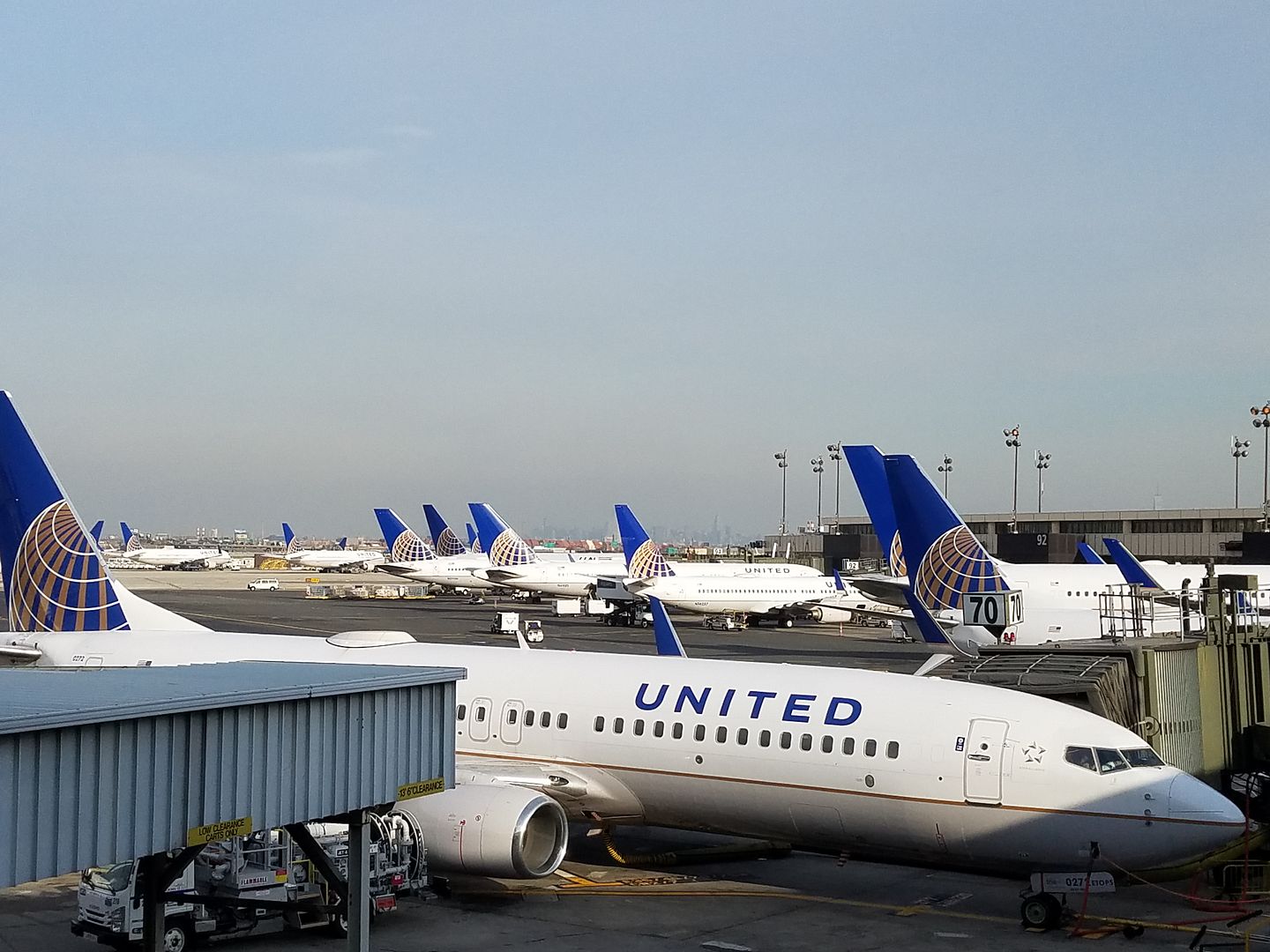
Brian Sumers interviewed Kirby and asked about the economics of the A350 for United. They have a deal with Rolls Royce for engines that was signed 8 years ago (when Kirby was first President of the airline) that he describes as “a bad deal” at the time that’s become a “good deal” thanks to (1) ensuing inflation and supply chain challenges, and (2) strong airline demand.
Sumers says, “I have heard from insiders that the engine deal may significantly change the economics of the airplane — so much so that Rolls-Royce may be apprehensive about honoring it.”
And Kirby suggests the time could be now to add a plane type to the fleet, because they’ll be retiring Boeing 757s and 767s anyway which means incurring the pilot retraining cost that comes along with it either way.
By the time we get to the end of the decade, we will be well into retiring the 767. I’m reluctant to bring a new fleet type on — for all the cost and complexity reasons. But as we are retiring the 767 and 757, we’re going to have to retrain pilots. We’re going to have to go through a lot of that cycle anyway, and it’s a natural time to at least think about, should we now actually turn it into a real firm order instead of continuing to defer?
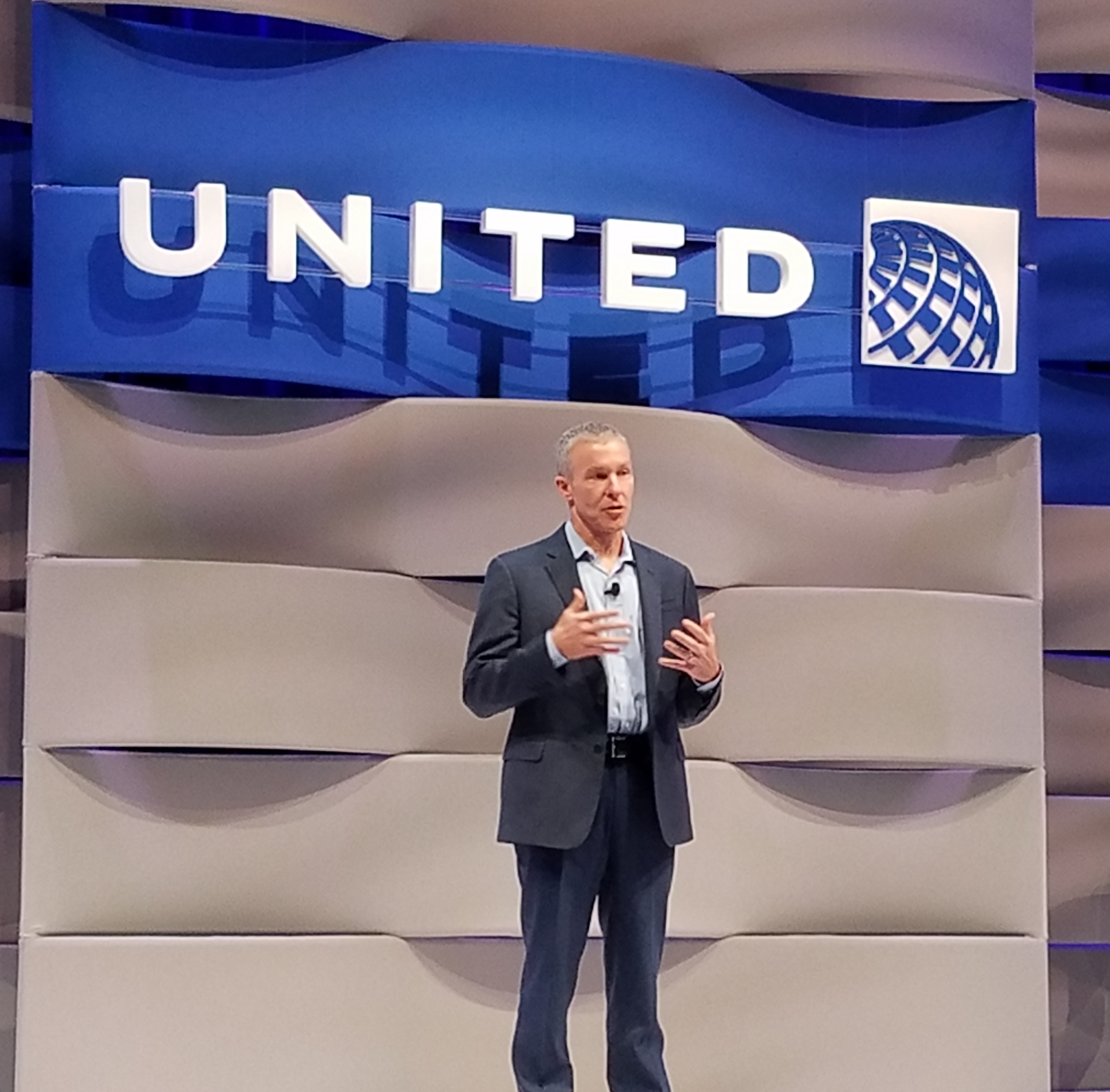
For the same reason Sumers says “Here’s why I think United could add A350s” I think United won’t add A350s. He’s probably right and I’m wrong, but nonetheless I find the reasoning odd.
Kirby has been talking up a ‘trade deficit’ in international travel. That’s brilliant framing for the current administration in Washington.
I want us to eliminate the trade deficit that the United States has in global long-haul service.
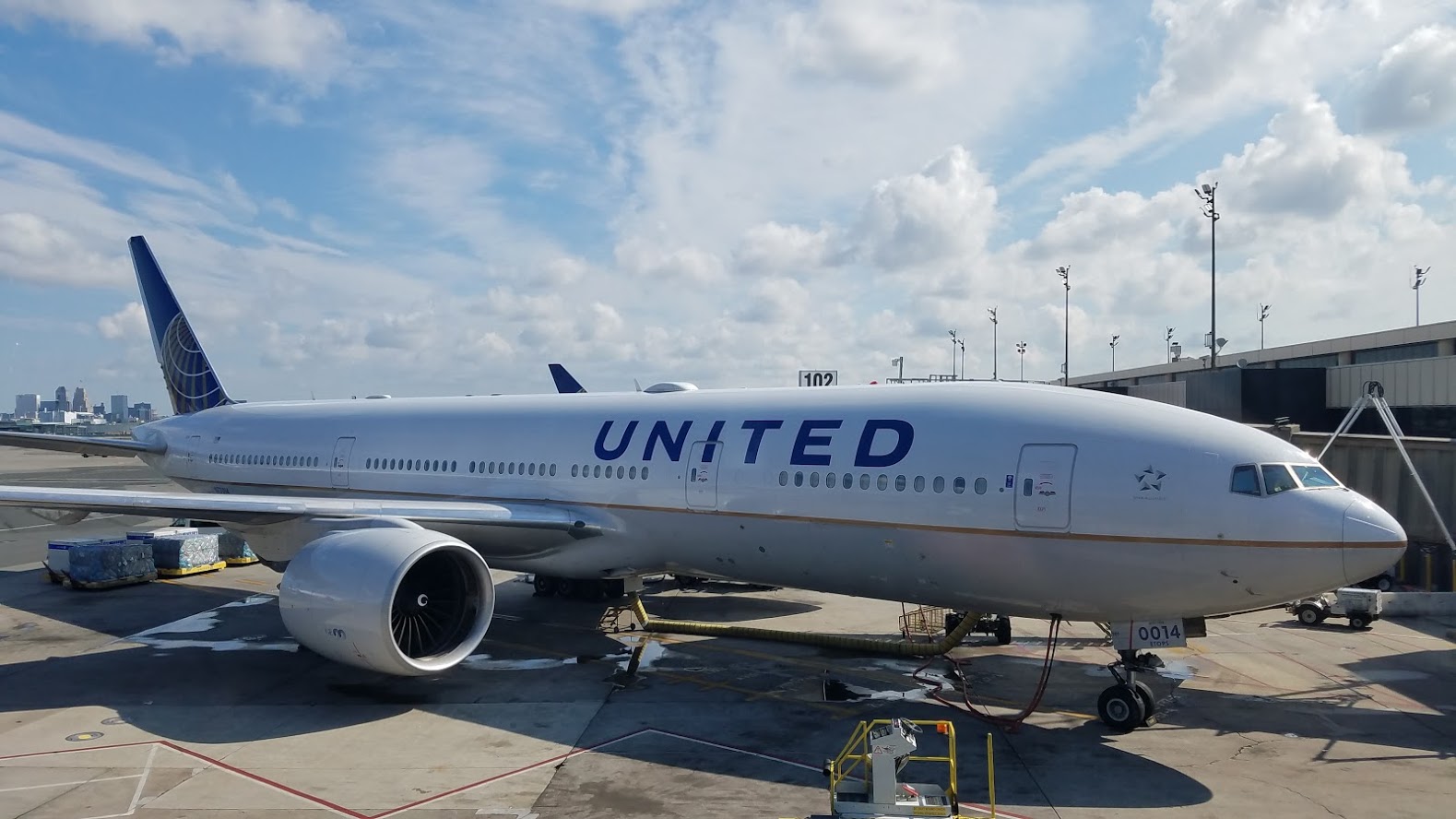
He told Sumers,
“Today, two-thirds of the long-haul international seats to and from the United States are on foreign flag carriers, even though 60 percent of the passengers are U.S. citizens,” he said. “We have a huge trade deficit in … long haul, international travel.”
…“The biggest reason is, by and large, international airlines are quasi-arms of the state,” he said. “They have various forms of state subsidies that allow them to fly a lot more seats, and … in most cases, they don’t have to do it profitably.”
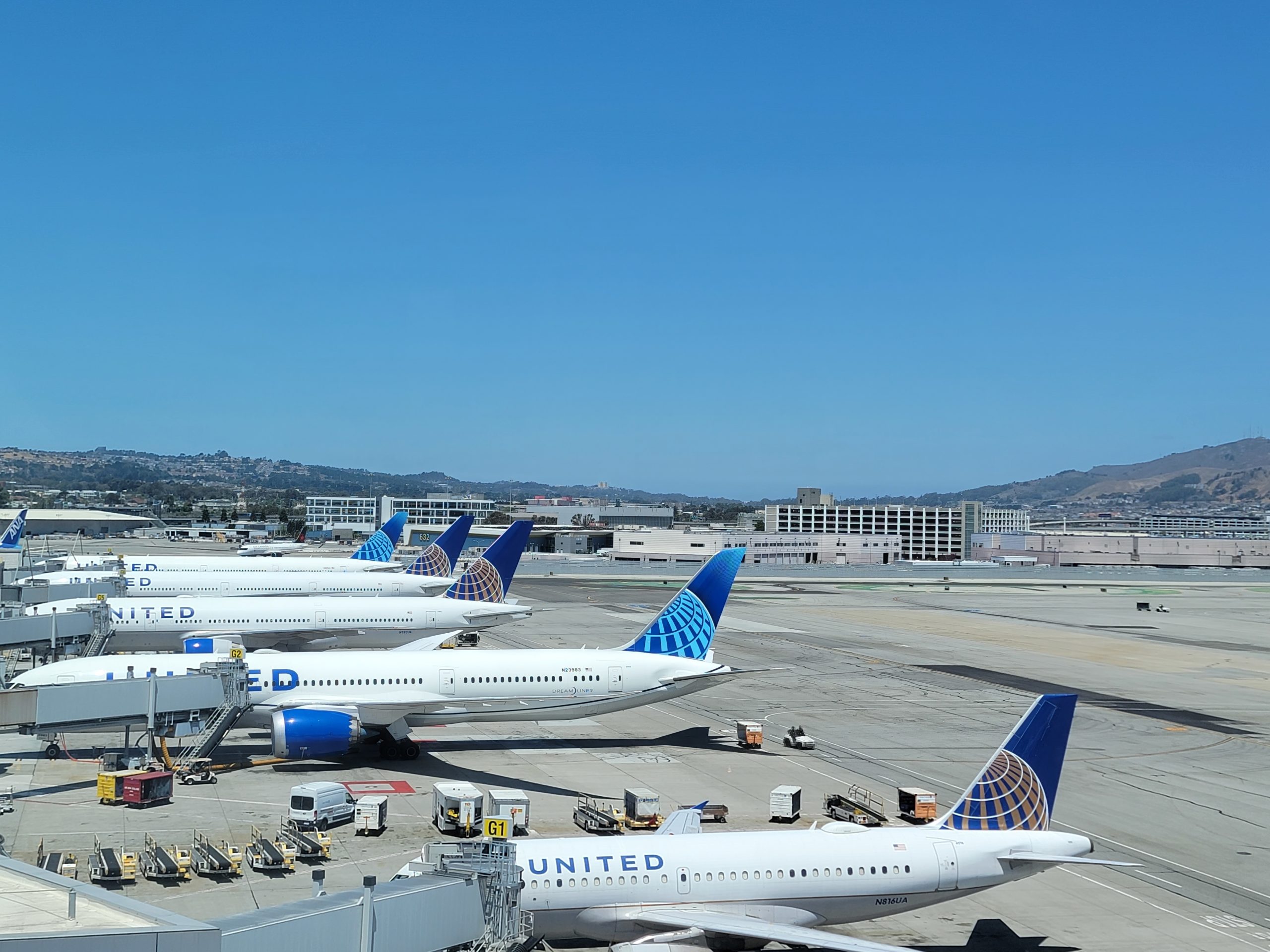
Foreign carriers are often able to fly to the U.S. as artifacts of their government, and also need to fly to the U.S. because they’re more than commercial enterprises. In any case, U.S. airlines are incredibly subsidized as well. They don’t pay the full cost of airports or air traffic control. Nearly $100 billion was spent during the pandemic on direct grants and subsidies loans. U.S. airlines are protected from foreign competition (foreign ownership restrictions) and from new airline competition (government-granted slots at congested airports, scarce gates at government-owned airports).
But subsidies and protectionism notwithstanding, it’s correct that there are more long haul seats on foreign carriers than there are on U.S. airlines. And it’s also correct that there are more U.S. originating passengers than foreign ones (although there’s no reason why this should matter other than loyalty programs). Foreign carriers are often better, and while it’s easy to blame subsidies it’s also because U.S. carrier products are also frequent bad.
And the lack of U.S. long haul seats is in part because the once-world’s largest carrier American Airlines barely flies long haul and retired all their Boeing 757s, Boeing 767s, and Airbus A330s. Their Senior Vice President of Network Planning has said repeatedly that he prefers multiple flights on narrowbodies over widebody trips, and it’s been said of him that he travels all over Mexico looking for airports with paved runways to add destinations.
Regardless, the significance of the ‘trade deficit’ and ‘unfair trade’ rhetoric notwithstanding it’s clearly designed to paint United’s global ambitions favorably with the Trump administration.
Sumers believes there’s no reason to do this unless you have even bigger global ambitions, and the Airbus A350 serves different missions than the 787 and so there should be destinations that work with an A350 that wouldn’t with a Boeing 787 (although I’d argue it’s usually the opposite, that because the A350 is somewhat oversized there are fewer destinations that work with an A350 than do with 787s).
Ultimately though you don’t talk up a ‘trade deficit’ to play to the Trump administration and then further fuel the trade deficit with a big Airbus order. At a minimum they’d need to pair it with a big Boeing order. They Airbus A350s are already on the books, and any firming there could be done quietly. They aren’t scheduled for delivery until the 2030s so United doesn’t really have to do anything publicly about acceptance this early in the Trump administration.
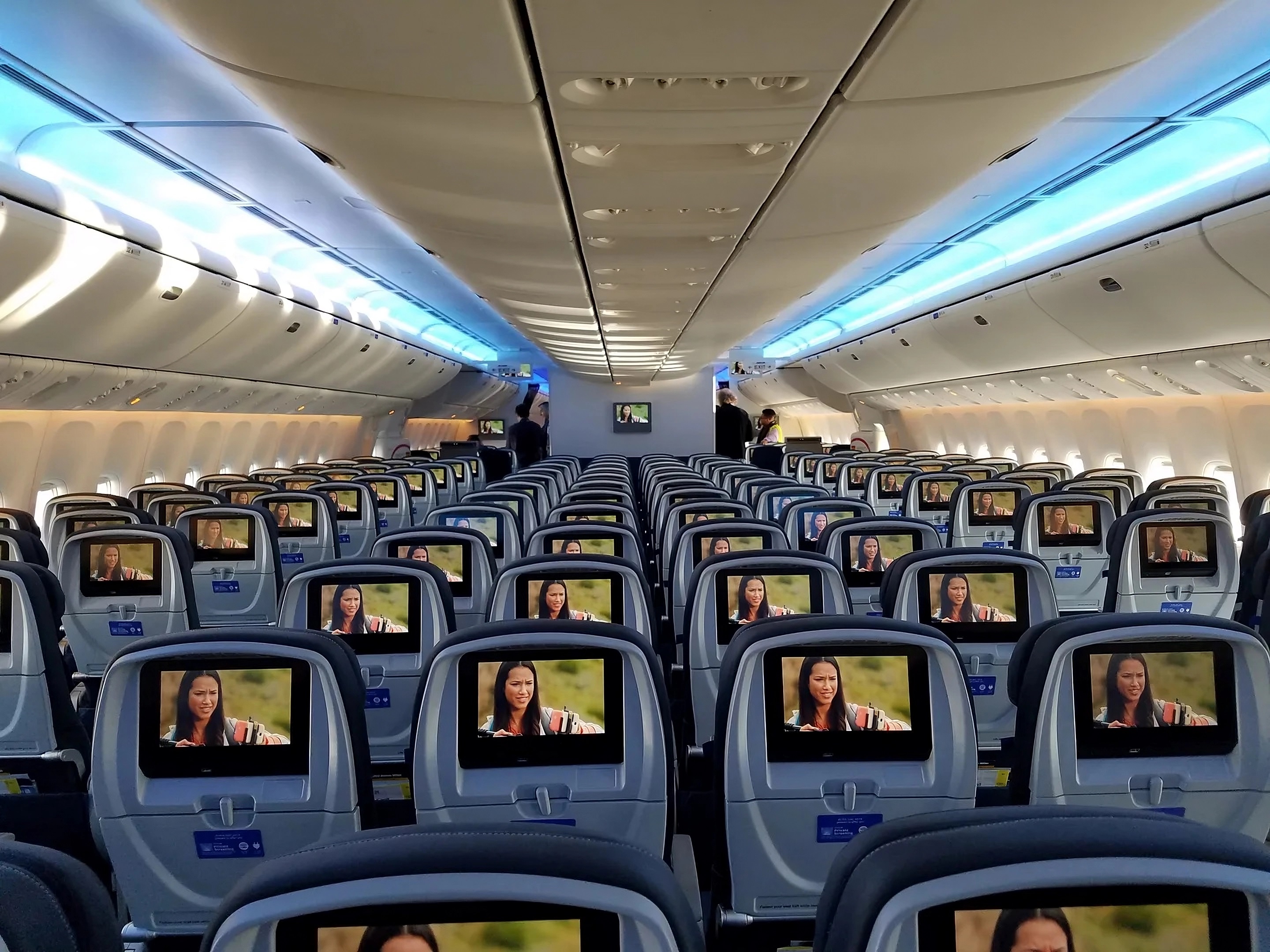
United still has over 140 Boeing 787s on order. They could add more. If we treat the 50 Airbus A321XLRs United had ordered as 757 replacements (the 757 isn’t a widebody in any case) then they’ll need to replace 53 767s and 74 Boeing 777-200s. There are 101 other widebodies in the fleet today, and about 20 of the order for growth. They’ll eventually need more widebodies than the current order to fully fund replacements and continue international growth.


Yeah, yeah… we know.. Kirby and United will wear any hat in the moment to appease whoever’s in charge.. be it painting everything rainbows for ‘the left’ or wearing a ‘red hat’ for the other guy… *yawn*
Anyway, Gary, have you seen this recent report in the WSJ about toxic fumes on airlines?
https://www.wsj.com/business/airlines/air-travel-toxic-fumes-64839d6e?st=1BC2ao&reflink=article_copyURL_share
Seems worthy of discussion at VFTW. Uh oh, @Tim Dunn, it happened on a Delta flight… (don’t worry, happens on other airlines, too!)
ultimately, UA has no choice but to buy the A350 even if DL overhauls the engines because the A350 is simply a more capable and efficient aircraft than the 787 and the 777X is too big of an airplane even for UA.
If you want to talk airline trade deficit talk Delta and it’s all A350/A330neo wide body fleet renewal. Yes small elements of the structures are US built, but most is not, and importantly the engines are RR with minimal American content. At least the A321s United are buying are equipped with US-made PW engines. And Delta had the gall to paint its support for the US Olympic team on an A350. Can you imagine Air France doing that for the French team with a 787? Certainly left a bad taste in my mouth.
and yet, John, Airbus has delivered widebodies to DL. It is not up to US companies to fix trade issues. It is up to them to buy the best products.
All of the major US automakers have heavily outsourced to other countries esp. Mexico because that is what former administrations including the current admin’s former term said was ok
and you do realize that major portions of the 787 are built outside of the US? The 737 is the only remaining majority sourced airliner which speaks volumes about how poorly Boeing has done in promoting US trade.
Kirby, as usual, is trying to deflect from the reality that Airbus has built a superior product to the 787. and DL will overhaul UA A350 engines or will benefit financially from UA’s decision if it buys the A350
The US based airlines may not like the “trade deficit” in international travel but they sure have their finger prints all over it. From the inferior service levels to the constant devaluation of their frequent flier programs, why should people make an effort to fly on US based carriers?
CEOs like Kirby own this issue.
@John’s comment focused on domestic production as some sort of litmus test for loyalty or treason is the silliest form of unnecessary nationalism I’ve seen recently.
Like, sir, my goodness, our oligarchs in the USA are literally the ones profiting off offshoring much of the production in recent years, because it benefited their personal and corporate bottom lines, screwing American workers.
Now, that simultaneously brought the rest of the world out of relative poverty, and peace, so maybe globalization isn’t the foe we make it out to be, but that depends on perspective.
No, I don’t think Delta, United or any US airline that buys an Airbus or Canadian or Brazilian aircraft is a traitor… however, if they bought those Chinese or Russian made death traps… well… yeah, obviously, immediate firing squad, right?
@1990, I was not referring to any such thing as a litmus test for loyalty, the American corporation threw that out the window decades ago in their desire serve the masters of Wall Street. I suppose you could say I understand the reality, but that doesn’t mean I have to like it . And. Tim, I’m not going to argue that the A350 isn’t a good fit for United. Boeing screwed the pooch when they oversized the 777x for the -300er replacement market.
Excellent reasoning, Gary ! I’m parked with @David P, the clear “trade deficit” in international travel is primarily due to poor Hard Product, poor Soft Product, and poor Frequent Flier Programs on the part of US Carriers.
@John — Fair ‘nuff!
When anyone mentions oligarchs, you can safely assume they are low IQ propagandists.
@Mantis — Do you prefer ‘billionaires’ or ‘centi-millionaires’ instead? Like, referring to individuals with outsized influence due to dark money in politics, most of whom did not ‘earn’ their wealth, so much as inherited or exploited others and resources to get it. The ‘pipeline’ from libertarian to outright fascist backed by these ‘industrialists’ and modern-day techno-feudalists, is very short, it seems. Oh, wait, are those words ‘baddies,’ too? Just saying, I’m not finding too many actual ‘conservatives’ these days, just foot soldiers for authoritarians. Keep carrying water for them, I guess…
*pew pew* big words *pew pew*
@1990 – long-time readers are no stranger to this issue https://viewfromthewing.com/is-airbus-doing-enough-to-stop-the-fumes-that-are-making-people-sick/
Great. Because your product sucks, I choose to fly foreign airlines. So, the US Airline CEO solution is to basically try and force me to fly their crappy product at an inflated price.
One more reason to hate these guys.
Bla bla bla, Airbus
Bla bla bla, Boeing
Neither manufacturer can supply the world with all the needed aircraft.
And quite frankly, if I’m on a trip to Tokyo or London I don’t care if I’m on a 787 or a 350.
I would rather be on a 777 if I had a choice, but even that is not a big deal.
As long as I’m sitting up front. My second concern is price or FF points.
At the end of the day, all of them are just metal tubes. Just like a city bus.
All of the Keyboard Clairvoyants on this site think their sage wisdom is the bottom line. It’s not.
There’s a lot of nuance in they “why” behind foreign carrier dominance on international travel.
1. Kirby said 60% of all international flights and then pivoted the conversation to long-haul international. They are not the same thing.
2. When you are flying long-haul international from the US the international carriers often provide greater end-point connectivity. For example, If I live in ORD and want to get to BER, I either fly to EWR or JFK (knowing their joyous operations) do connect to the one flight a day on a US carrier to BER. Or, I fly to a European hub where they have greater frequency to BER. Preferentially flying US carriers long-haul often means fewer options or more connections.
3. As stated earlier, many foreign carriers just offer a better product. Not a single US airline appears in the top 10 globally.
4. As for subsidies, everyone is subsidized. Kirby has a lot of nerve talking about subsidies given how many times the US airline industry has been bailed out by Washington and how their competitive interests are protected through slot and gate control and ownership requirements.
If US airlines actually had to compete on a level playing field they would be hosed.
I don’t engage with low IQ propagandists. Just wondering if the leftists like AOC and Bernie flying around on private jets to the fight oligarchy tour are disavowing money from Soros, Hoffman, Pritzkers, Benioff, etc. Of course not, they were sponsoring it. Youre a stupid pawn. The most disingenuous argument ever. We all know most billionaires are leftists, because once you have a certain amount of wealth you suddenly forget how hard it was to make it, and you don’t care about income tax anymore, in fact, you like income tax because that protects you. Leftist billionaires got theirs already, now they just want power and control (same as Dems). Implement a wealth tax instead of an income tax, and suddenly watch the elitist leftist cockroaches scurry.
I agree with @Parker and would only add on clarification: The US airline industry is NOT bailed out by “Washington.” They are bailed out by the American people, who keep being forced (via our elected officials) to bail out these over-paid, self-important, selfish jacka**es
United WILL need the A350-900 because it is the same size as the aging Boeing 777-200s and has the same seating capacity. It doesn’t need the plane right now but it will by the time United has to start retiring the 777-200s. Canceling the order would be a big mistake because that would open up production slots for other airlines that want A350s and Boeing’s 787-10 doesn’t match the A350-900’s superior range and operating economics, not even the HGW version under development. The 787-10 currently operates ORD-HND which is pushing the limit of its range but the A350-900 can easily take over that route and free up the 787-10 to be redeployed elsewhere. When United will have to retire its Boeing 777-300ERs in the 2030s, the best replacement for those planes is the A350-1000 because it is the TRUE 777-300ER replacement, not the 777-9 which is too big even for United.
Parker is spot on other than to note that the entire US economy was heavily subsidized by taxpayers during covid.
Airlines got a lot of money but so did other parts of the economy.
The problem is that those subsidies for the airline industry prevented companies from failing and UA would most certainly have been one of those in dire finances w/o government aid; there was good reason why they fought so hard to give refunds. DL and WN both pulled down billions in lines of credit. Even now, UA still carries far more cash than other airlines and most other businesses as a percent of revenue because UA fears another black swan event could wipe them out esp. given their huge order book.
All airlines heavily rely on their home market; that is true in most countries. There are a few countries like Singapore where their geography makes it harder for foreign airlines to compete so the home carrier has an advantage even w/ US passengers but US airlines are not unique in skewing to their home country for sales
and the reason why US carriers spend less on soft product is because their labor costs are so much higher and their workforces are so heavily unionized w/ far less service accountability even compared to heavily unionized European airlines.
Erik
the reason why UA will have to take the A350 is because DL can already carry more passengers further on its A350-900s than UA’s 787s band the gap will widen when the DL 350-1000s start coming. UA’s lead over the Pacific could shrink very quickly if DL can carry 90 more passengers on their 35Ks compared to AA and UA’s even more reduced configuration 787-9s.
Airbus has long followed Boeing in developing competing models and the 350 simply topped the 787 in many regards, esp. in ultra long haul capabilities w/ more passengers. There is a reason why there will be a huge increase in the number of 35Ks delivered in the next few years as Airbus increases the MTOW to over 700,000 lbs.
On the fumes topic: Wow, there really is a prior VFTW post for nearly every topic! I’m impressed, Gary. Well done, sir!
1990
there is a pretty detailed article about commercial aircraft fume issues on the Wall Street Journal’s site.
United may not have time to buy the A350. The way the plane is selling Airbus may sell the slots to other airlines. With a huge Chinese order coming up and others as well it may be Airbus who cancels their long delayed order. United is stuck with just the 787 for good.
Typical shareholder value management. First they gut the brand of long-term value that can be traded for short-term paper growth. Then when there’s nothing left to fake growth, they whine about foreign competition.
Strip their subsidies.
I would argue this, at least minimally: Airbus is actually delivering A350s to airlines. Boeing has yet to receive type certification from FAA or EASA for the 777X. It makes some sense that if they are feeling the pinch of continuing to operate the 777 fleet, they could firm the orders and start receiving planes.
In many ways; this is really a result of the issues inside Boeing.